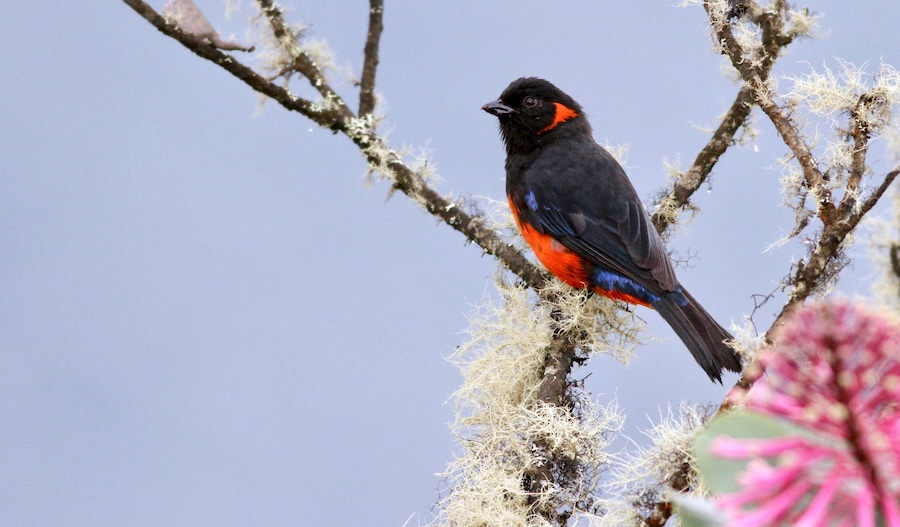This post was originally published on Eco Watch
The richest countries in the world are “exporting extinction” by destroying 15 times more biodiversity globally than they do within their own borders, according to a new Princeton University study.
The researchers found that 13.3 percent of biodiversity loss worldwide came from the consumption of high-income countries, a press release from Princeton said.
“Biodiversity loss has accelerated at an alarming rate in recent decades, driven largely by human activities such as clearing forests to grow crops or harvest timber. While countries often degrade ecosystems within their own borders through these activities, they also play a significant role in driving habitat loss overseas by outsourcing agricultural production, i.e., importing food or timber from other countries, thereby leading those other countries to destroy their forests to produce the exports,” the press release said.
The study is the first to quantify the degree of countries’ contributions to worldwide biodiversity loss when they shift the environmental impact of their consumption abroad.
The researchers looked at how 24 high-income countries impacted 7,593 forest-dependent animal species, from mammals and reptiles to birds. They integrated economic trade data with deforestation maps derived from satellites and information on species’ ranges from 2001 to 2015. By integrating the information, they were able to pinpoint severe biodiversity loss “hotspots” and quantify how much of each species’ habitat loss was attributable to the individual country’s imports.
“Tracing the impacts that countries have on the environment outside of their borders is difficult to do,” said lead author of the study Alex Wiebe, a doctoral student in Princeton’s Department of Ecology and Evolutionary Biology, in the press release. “By combining satellite imagery with economic and biodiversity data, we are now able to measure and map exactly where countries impact species around the world for the first time.”
A scarlet-bellied mountain tanager. Alex Wiebe
The findings revealed that deforestation driven by the countries’ imports of crops and timber from beyond their borders caused over 13 percent of range loss for forest-dependent vertebrates worldwide, in addition to domestic biodiversity loss.
Each of these nations caused an average level of biodiversity loss that was 15 times higher than their own domestic impacts. The United States, France, Germany, China and Japan were among the top contributors. Eighteen of the two dozen countries had higher global than domestic effects on biodiversity loss.
“By importing food and timber, these developed nations are essentially exporting extinction,” said David Wilcove, the study’s co-author and a professor of ecology, evolutionary biology and public affairs at Princeton. “Global trade spreads out the environmental impacts of human consumption, in this case prompting the more developed nations to get their food from poorer, more biodiverse nations in the tropics, resulting in the loss of more species.”
The findings also showed that nations tend to have the biggest impact on species living in the nearest tropical regions.
U.S. consumption had the largest effect on Central American wildlife, while consumption by Japan and China strongly impacted Southeast Asia’s rainforest species.
The results also highlighted the harmful impacts international trade has on endangered species. The researchers discovered that over half of the ranges of a quarter of critically endangered species were lost due to international consumption over the course of the study period.
“By increasingly outsourcing their land use, countries have the ability to affect species around the world, even more than within their own borders,” Wiebe explained. “This represents a major shift in how new threats to wildlife emerge.”
Wilcove highlighted the necessity of collaboration between exporting and importing countries in order to improve habitat conservation and boost the sustainability of trade practices.
”Global trade in food and timber is not going to stop,” Wilcove said. “What’s important is for the importing nations to recognize the environmental impacts this trade has on the exporting countries and to work with those countries to reduce those impacts. All nations stand to benefit by promoting habitat protection and sustainable agriculture because biodiversity benefits all nations.”
The study, “Global biodiversity loss from outsourced deforestation,” was published in the journal Nature.
The post World’s Richest Nations Are ‘Exporting Extinction’ With Demand for Agricultural and Forestry Imports: Study appeared first on EcoWatch.





0 Comments